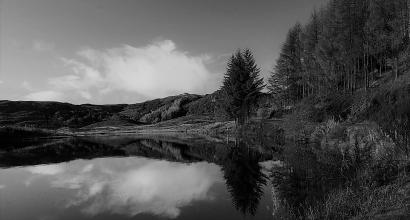An old farmer and his grandson lived on a farm. One day the grandson said, “I try to read the Bhagavad-Gita just like you but I don't understand it much. And whatever little I understand, I forget it very soon. What is the use of reading this book?”
The old farmer quietly turned from putting coal in the stove and said, “Take this coal basket down to the river and bring me back a basket of water.”
The young boy did as he was told, but all the water leaked out before he got back home. The farmer asked him to try again, and again. But every single time, the water leaked out of the basket before he got back to the house. Finally, he said exhausted, “See Grandpa, it’s useless!”
“So you think it’s useless?” the old farmer said, “Look at the basket.” The boy looked at the basket and for the first time realized that the basket had been transformed from a dirty old coal basket to a new clean one, inside and out.
“Son, that's what happens when you read a book like the Bhagavad-Gita. You might not understand or remember everything, but when you read it again and again, you will realize the benefit one day.”
One of the invocatory verses for the Gita says:
मलनिर्मोचनं पुंसां
जलस्नानं दिने दिने ।
सकृद्गीताम्भसि स्नानं
संसारमलनाशनम् ॥Every day, we bathe in water to cleanse our body; we should bathe in the Gita to cleanse our life.
Bathing has long been associated with a sense of hygiene. We use water to cleanse and purify our body. Similarly, the pure thoughts of the ancient peoples could help cleanse our own thoughts, which are often polluted because of our surroundings.
“I bathe my intellect in the stupendous and cosmogonal philosophy of the Bhagavat Geeta, since whose composition years of the gods have elapsed, and in comparison with which our modern world and its literature seem puny and trivial...” – Henry David Thoreau, Transcendentalist philosopher and writer
Reference
Thoreau, Henry David. Walden; or, Life in the Woods. New York: Dover Publications Inc., 1995. pp. 192-93















































